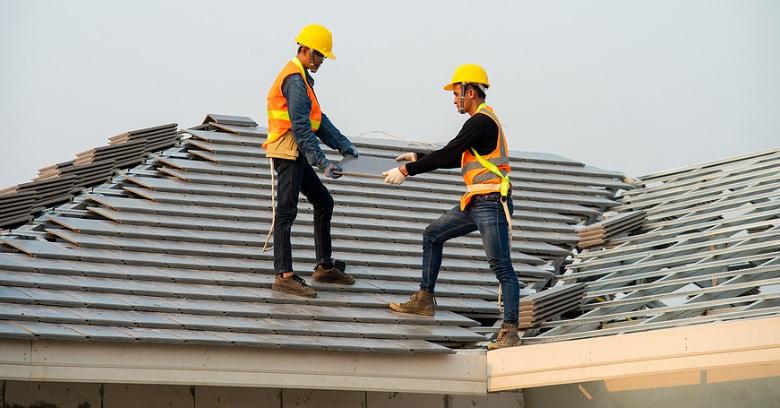Regular roofing inspections by a qualified roof serviceroof is the first line of defense against damage that can slowly destroy a roof if not discovered and fixed.
Unfortunately, many people go for long periods without one, calling roofers only when there is a problem.
This break-fix approach can cause a lot more damage than you might think.
To prevent it and be certain of getting a full life out of an expensive roofing addition, understand the importance of roof inspections and what they entail!
What Is Included In A Professional Roofing Inspection?
A inspection performed by a professional roofing contractor includes a detailed, close-up look at your roof to judge it on four main factors.
Those are structural soundness, materials, workmanship, and interior soundness.
With this information, it is possible to monitor your roof from year-to-year and detect or predict problems so they can be repaired earlier as opposed to later.
- When performing the inspection, an experienced roofer will start by looking at the structural soundness of the entire house or building, from its angles and attachments to the condition of gutters, soffits and fascia, protrusions, chimneys, and all other physical aspects of the roof to be sure that everything is in good condition and there are no signs of damage.
- Next, the contractor will inspect the roof for signs of wear or damage, also looking for signs of poor workmanship that can lead to roofing problems. Materials that are aging poorly or might be defective will be noted as will areas where the workmanship might be questionable and require repair to prevent damage to those areas.
- Then after assessing the materials, workmanship, and condition of the entire roof structure, the roofer will go inside the house or building to inspect things from the attic where the trusses and rafters are visible to look for old or new signs of leaking, mold growth, and other indications that there is damage that just may not be visible from the outside.
How Often Should A Roof Be Inspected?
While it’s suggested to have any roof inspected by a local roofer every spring and fall, many people do fine with an inspection once a year if their roof is in good condition and any issues are promptly dealt with.
If opting for once yearly, it’s best to have a roofing inspection done in the spring before storm season to ensure it’s in good condition and able to withstand those storms once they come.
Roofers also recommend having an additional inspection after a major storm, as some storm damage may not be obvious to the naked eye but should be discovered and repaired as soon as possible.
Can I Inspect My Own Roof?
Though it may be possible to do a quick visual inspection of roofing from the ground and notice more obvious problems, you won’t be able to see most other damage that way.
Professional roofing contractors need to go onto the roof to do a surface inspection to correctly gauge the condition of your roof.
It’s not recommended that anyone but a trained roofer go on a roof.
You can still keep an eye out for more apparent concerns in between inspections; however, call a roofer if something doesn’t seem right.
The Value of Regular Roofing Inspections
Roofs are funny because we don’t remember that they are there most of the time, yet when there’s a problem, we definitely know about it.
The best way to keep a roof healthy so you don’t end up replacing it too soon is by hiring a professional roofing contractor to perform routine inspections.
A thorough inspection inside and out by a qualified roofer is a small investment made to protect the huge investment you’ve already made!
